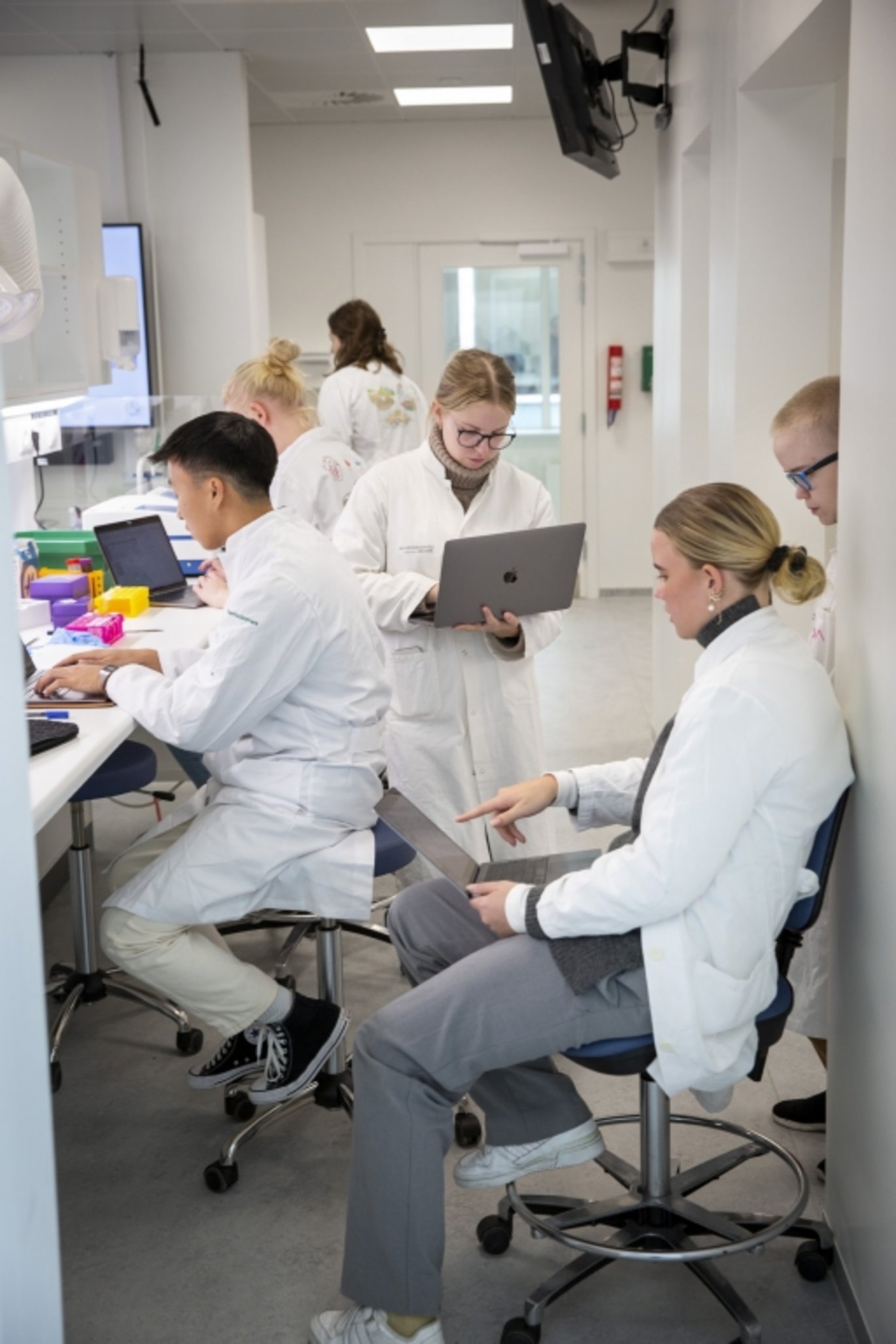Nordic EMBL Partnership awarded NordForsk funding for a postdoc program in molecular medicine
The NordForsk-funded NORPOD program of the Nordic EMBL Partnership will nurture research collaboration for the benefit of human health.

By Nora Lehotai, Nordic EMBL Partnership
The Nordic EMBL Partnership for Molecular Medicine has been awarded 20 million NOK for five years (2024-2028) by NordForsk as part of their Nordic University Cooperation initiative. The positive decision and “excellent” rating came after peer review and strategic assessment by an international expert panel. The NORPOD program is co-financed by the host universities of the four Nordic EMBL nodes - Universities of Umeå, Oslo, Aarhus and Helsinki.
Transforming Nordic molecular medicine research
The Nordic EMBL Partnership has since 2020 hosted a NordForsk Research Infrastructure Hub to foster training and scientific exchange in translational molecular medicine research. The Infrastructure Hub facilitates networking and support among the partners, leveraging their expertise to benefit extended national research communities.
Building upon these intensified interactions and knowledge transfer, the Partnership will launch its new program called “NORPOD - A collaborative postdoc program of the Nordic EMBL Partnership for Molecular Medicine” at the beginning of 2024. NORPOD aims to foster the next generation of researchers in molecular medicine by implementing joint postdoctoral research projects. These projects are designed to nurture strong competencies and research excellence.
Unlocking Nordic strengths in translational research for a safer and healthier society
The NORPOD postdoctoral program will inspire interdisciplinary approaches in molecular medicine and stimulate the mobility and exchange of core expertise and resources. The Partnership's track record includes facilitating co-supervision of PhD students and providing a platform for exchanging ideas and resources among Master's and PhD students, postdoctoral researchers, group leaders, and support personnel. This collaborative environment allows individuals to tailor their working environments to support their career development. With the NORPOD program we expect to release this potential much further, as a defined core strategy and shared mission of the Partnership.
Different Nordic countries have unique and individual strengths in using registry data and biobanks, in using gene therapy to cure monogenic disorders, in cancer multi-omics for precision medicine or in pandemic preparedness. The Partnership has identified three cross-cutting themes that connect these areas of strength in the Nordics: (1) Precision medicine. (2) From microbes to infection genomics. (3) Neuroscience -- from genes and circuits to disease mechanisms and interventions. NORPOD will connect Partnership researchers in these domains, which encompass major challenges to Nordic societies. NORPOD will generate specific research outcomes in these areas for a safer and healthier society.
Early career researchers benefit from competence-building and collaborative European research networks
With NORPOD, the Partnership aims to further educate future project and research leaders in molecular medicine through a variety of training and mentoring activities. Their specialist network will strengthen translational research, precision medicine and personalised care that will improve translational opportunities and directly impact public health. The program will foster innovation in the clinical sector, the pharmaceutical industry, and biotech start-up environments and stimulate investment in these areas by opening new competitive positions and application opportunities.
The four Nordic EMBL nodes work in partnership with the European Molecular Biology Laboratory (EMBL) and its sites throughout Europe, and NORPOD is inspired by the successful EMBL Interdisciplinary Postdoc Program (EIPOD). NORPOD gives the opportunity for closer integration and research collaboration with EMBL colleagues, while the Nordic EMBL Partnership also utilises advice and infrastructure of the wider EMBL network.
Oliver Billker, Speaker of the Nordic EMBL Partnership and Director of the Swedish node, MIMS, says:
“All Nordic societies benefit from remarkable recent progress in molecular medicine, but the research competence in our countries is often complementary and collaboration therefore important. Our Partnership offers a way for universities to work together, to strengthen training and to create a flow of ideas. I am delighted that with the NORPOD initiative we can now for the first time build a joint program of research projects. All institutes have put much thought and dedication into this new initiative, and we are now all very keen to take our partnership to a new level of collaboration.”
About the NordForsk Nordic University Cooperation initiative
The overall aim of the Nordic University Cooperation programme is to enhance international competitiveness and promote the growth of outstanding research environments in the Nordic region. It seeks to foster research-based collaboration among universities, facilitating greater researcher mobility and promoting capacity and competence building to elevate the excellence and impact of research cooperation across the Nordic countries. Each university consortium provides resources equalling twice the amount of funding sought from NordForsk.
